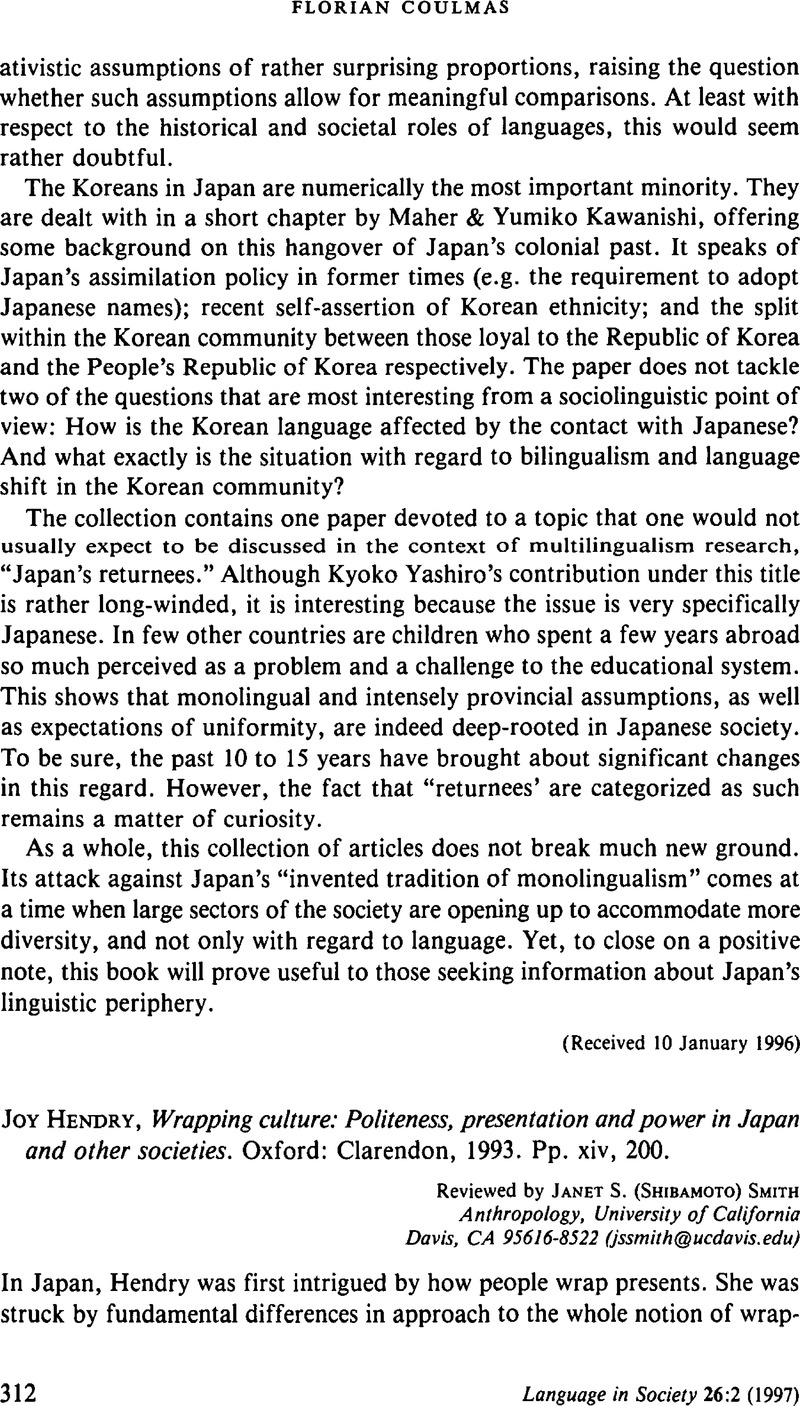Crossref Citations
This article has been cited by the following publications. This list is generated based on data provided by Crossref.
Watts, Richard J.
2003.
Politeness.



